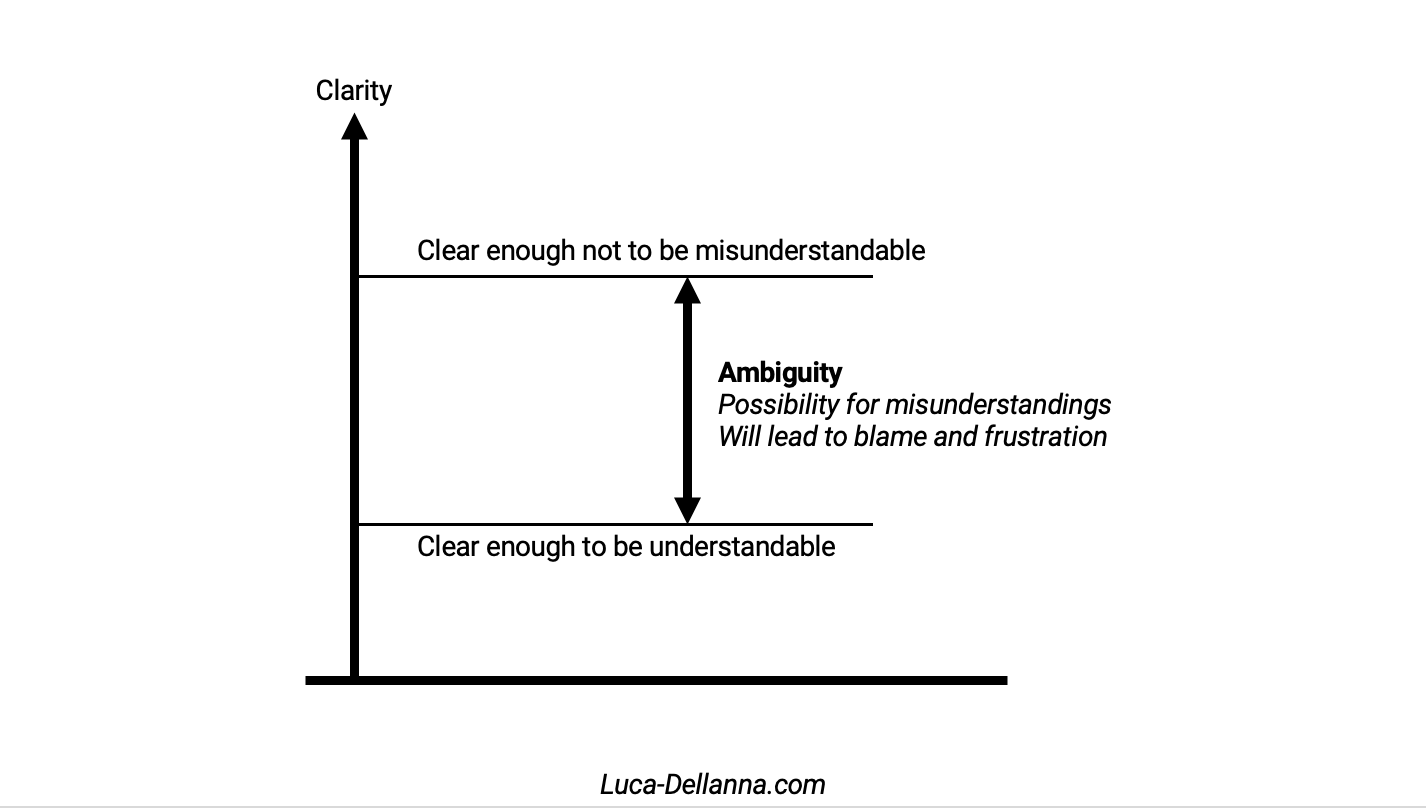Superclarity
Do not be so clear that you can be understood. Instead, be so clear that you cannot be misunderstood.
Published: 2022-11-05 by Luca Dellanna
Most managers should communicate more clearly. Their standard for clarity is: “be clear enough so that you can be understood.” But that is not enough.
If you are clear enough to be understandable but not so clear that you cannot be misunderstood, your subordinates might misunderstand you. If it happens and the misunderstanding isn’t clarified immediately, it will lead to blame and resentment. Hence the need to be super-clear: not just enough so that you can be understood but clear enough so that you cannot be misunderstood.
Be superclear
Do not be so clear that you can be understood. Instead, be so clear that you cannot be misunderstood.

Why aren’t managers superclear?
It is often a deliberate choice. For example, some managers believe being superclear would insult their interlocutor’s intelligence. While this might be true, it’s also true that any misunderstanding from not being superclear will damage their subordinates’ trust and respect – and the latter effect is stronger.
Other managers aren’t superclear because they believe they must leave space for their subordinates to be creative in coming up with a solution. But it is possible to be superclear about an objective and yet leave space for how to achieve it. Conversely, being unclear about what you want them to do might lead to paralysis or playing it excessively safe.
And finally, some managers aren’t clear because they do not know what they want, at least not concretely.
How to become superclear
The theory is easy: aim to be so clear that you cannot be misunderstood – and, to avoid micromanaging – focus on the outcome you need, not on how to achieve it.
The practice is harder. I have three actions that help achieve superclarity.
- Be concrete and make examples. Don’t just mention abstract concepts, such as “be ethical.” Talk in terms of actions. Explain what it means to be ethical. What does an ethical person do? And an unethical one?
- Ask yourself, “Let’s imagine that after I finish speaking, my interlocutor has a different understanding than me. What might they have missed or misunderstood?” Then, of course, proactively add information that will pre-empt the misunderstanding.
- Ask your interlocutor to rephrase what you asked them. This will help catch omissions and misunderstandings. Asking to rephrase isn’t an insult to your interlocutor’s intelligence – after all, rephrasing and repetition are performed mainly by high-stakes and highly-professional specialists such as surgeons and airline pilots. That said, if you feel uncomfortable asking to rephrase, you can instead ask, “what do you plan to do?” and then notice if their answer is aligned with the outcome you want them to achieve.